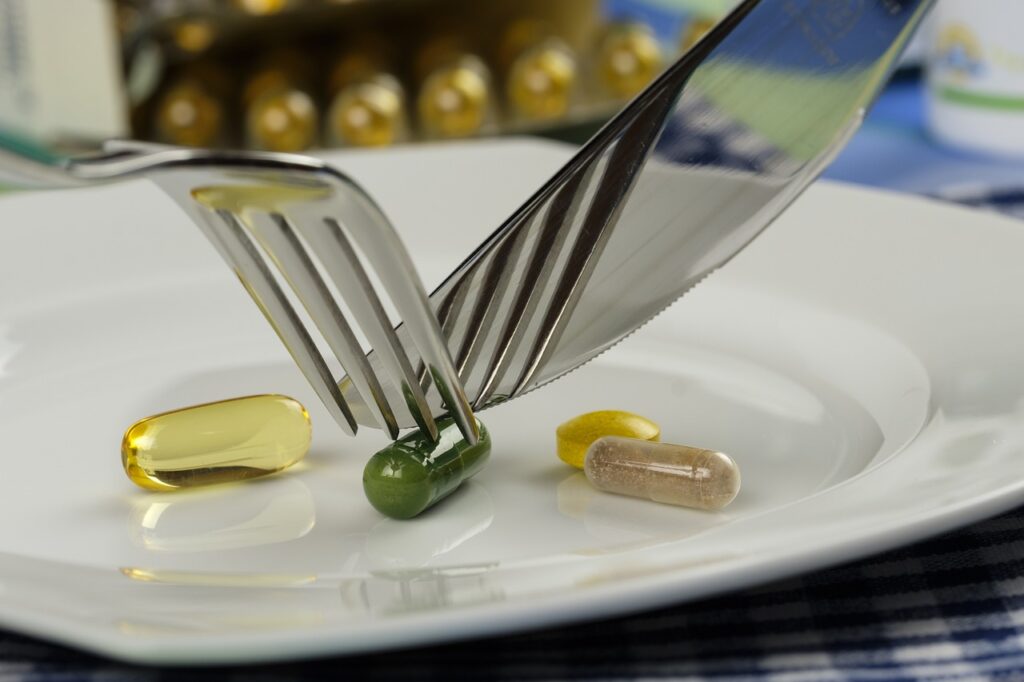
Parkinson’s disease (PD) is a progressive disorder of the nervous system that affects movement. It is caused by the death of dopamine-producing cells in the brain. When the brain lost 70% of these cells, the body shows symptoms like tremors, stiffness, and difficulty with coordination and balance.
While there is no cure for PD, there are a variety of medications and treatments available that can help manage symptoms and slow the progression of the disease. Dietary vitamins can provide additional nutrients that may benefit people with PD.
Although many vitamins have been reported to be useful for PD, the following ones got more attention due to their use in research.
1. Vitamin D
In recent years, there has been some interest in exploring the potential therapeutic effects of vitamin D in PD. It’s a crucial nutrient that plays a role in maintaining bone health and the proper functioning of the immune system.
Although the exact mechanisms by which vitamin D may affect PD are not fully understood, several studies have suggested that it may have neuroprotective effects and may help to reduce the progression of the disease. For example, a study published in the Journal of Neuroscience Research reported that vitamin D is a powerful shield for dopamine neurons, safeguarding them from various forms of damage. Similar results were observed in another study that appeared in the Journal of Neuroinflammation. In this study, vitamin D effectively reduced the damaging effects of neurotoxicity in rat brains, potentially protecting dopaminergic neurons from harm.
A study that appeared in the Journal of Neuroinflammation reported that vitamin D is a powerful shield for dopamine neurons, safeguarding them from various forms of damage.
While results from these animal studies are encouraging, larger and well-controlled clinical trials are needed to determine the safety and efficacy of vitamin D in the treatment of PD.
Related post: Is it True that Vitamin D is Protective Against Parkinson’s Disease?
2. Vitamin E
Vitamin E is a powerful antioxidant that is usually rich in vegetables and other components of the diet.
Several animal studies have reported that vitamin E supplementation is protective against PD. In these studies, animal brains were forced to show Parkinson’s like changes upon exposure to specific neurotoxins. These abnormal changes were highly reduced when the brains were pretreated with vitamin E.
There’re few clinical studies conducted regarding vitamin E supplementation in PD. One large community-based study showed that 10 mg/day of vitamin E intake may reduce the occurrence of PD. Another study suggests that long-term usage of vitamin E may delay the use of levodopa in Parkinson’s patients.
These clinical and experimental findings suggest that vitamin E could potentially benefit Parkinson’s patients.
3. Vitamin B6 and 12
Vitamin B complex is a group of 8 vitamins, which are essential for various metabolic processes inside the body. Vitamin B6 and 12 of this complex have been studied in relation to PD. Some anecdotal reports have suggested that these two vitamins may help improve symptoms of Parkinson’s disease, although more research is needed to confirm these effects.
Vitamin B6, also known as pyridoxine, is required for dopamine production in the brain. A recent study published in the Journal of Neurological Sciences reported that people with Parkinson’s disease are at risk of vitamin B6 and B12 deficiencies. In this study, supplementation of B6 and B12 relieves the neuropathy symptoms, which are often associated with falls.
The Takeaway
While animal research suggests that certain vitamins are protective against Parkinson’s disease and may slow the disease progression, whether their intake can have the same beneficial effect in humans is uncertain. Therefore, vitamins should not be considered a cure for PD, and they are not recommended for use as primary treatment for the disease.
Vitamin supplements can be helpful for some patients, but they should be used with caution and only under the supervision of a healthcare professional. This is because some vitamins can interact with Parkinson’s medications, leading to side effects and decreased effectiveness of both the vitamins and the medicines.
Related post: Dietary Supplements – Are They Useful in Parkinson’s Disease?
Disclaimer: The information shared here should not be taken as medical advice. The opinions presented here are not intended to treat any health conditions. For your specific medical problem, consult with your healthcare provider.